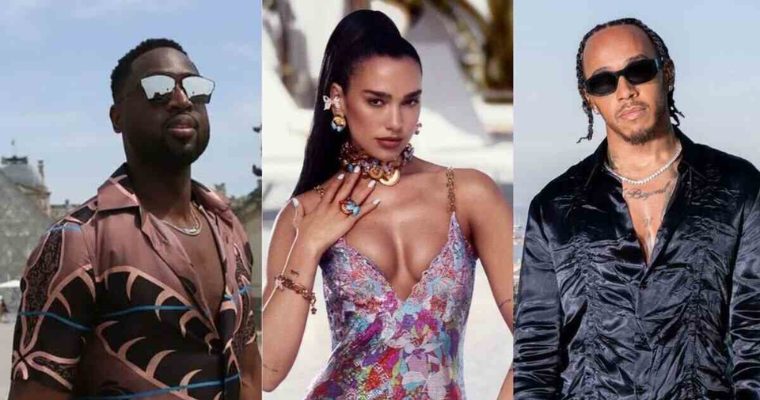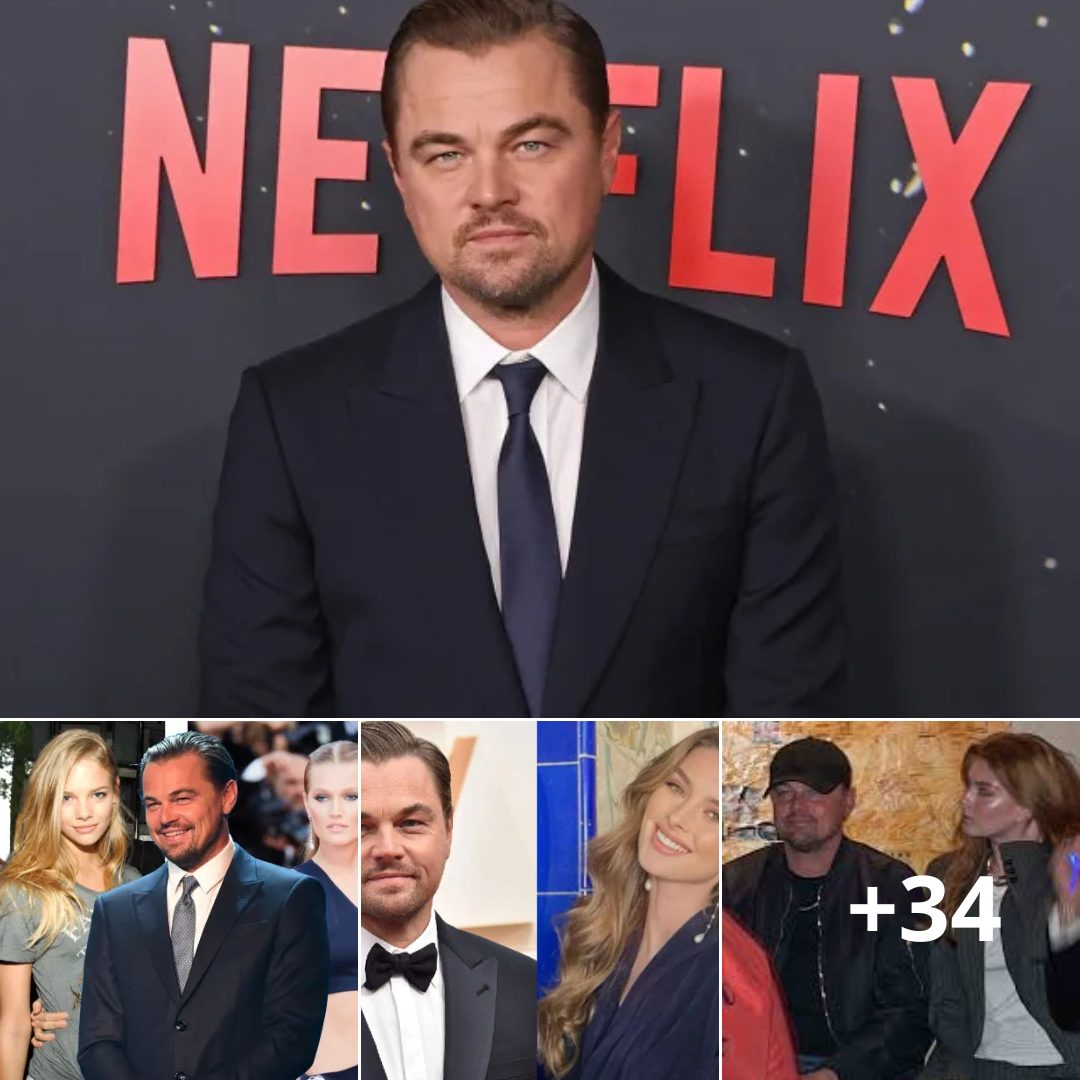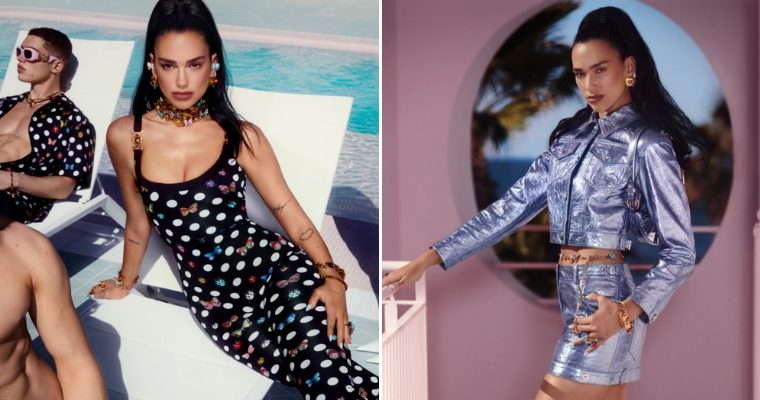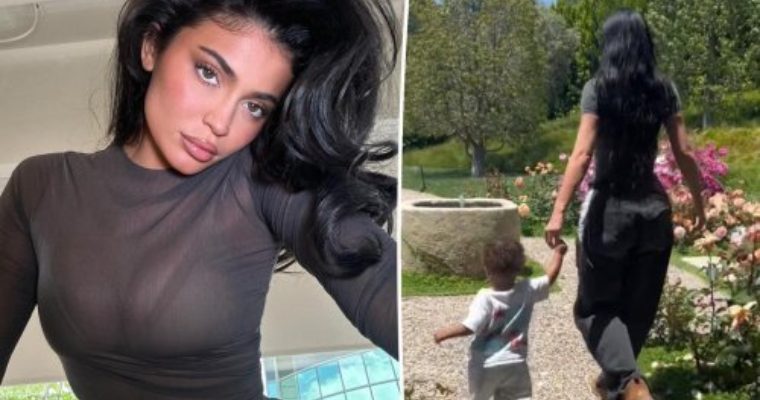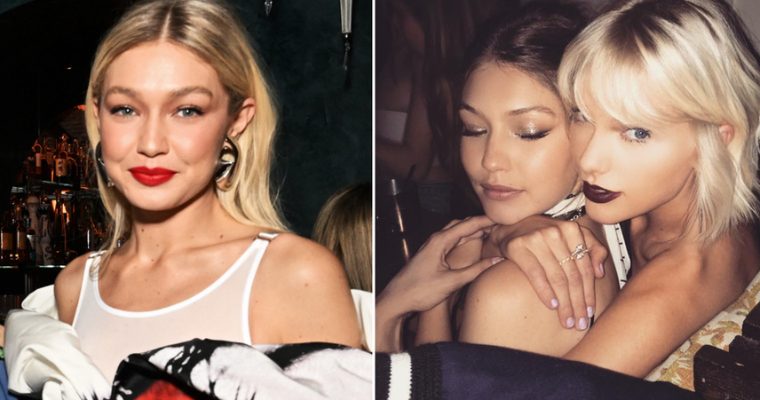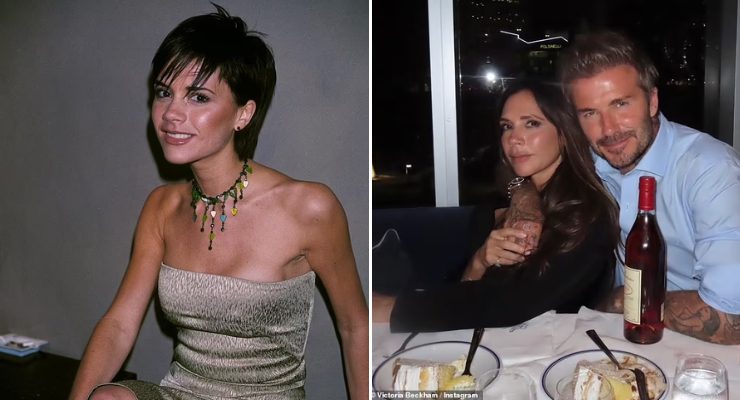Scarlett Johansson has been one of the highest-paid, most in-demand actors in Hollywood for years.
Best known for her roles in films like “Lost in Translation,” “The Avengers,” and “Marriage Story,” the 36-year-old actor became the highest-grossing female movie star of all time in 2016 and was the highest-paid female actor in both 2018 and 2019, per Forbes.
Her astronomical success, however, hasn’t been without its controversies, out of which Johansson recently said she’s “made a career.”
In recent years, the Manhattan-born actor has been accused of whitewashing in a live-action remake of a Japanese manga series and criticized for accepting the role of a transgender man in “Rub & Tug.”
Johansson, an outspoken supporter of feminist movements like Time’s Up and #MeToo, also raised eyebrows for being the first celebrity to publicly wear a design by Harvey Weinstein’s ex-wife after numerous women accused the disgraced producer of sexual assault and rape. She later defended Woody Allen amid Dylan Farrow’s sexual abuse allegations.
The “Black Widow” lead has previously apologized for “mishandling” certain situations but remains steadfast in many of her divisive comments and actions. “I’m going to have opinions about things, because that’s just who I am,” she recently told the UK magazine The Gentlewoman.
Here’s a timeline of Johansson’s past controversies.
January 2015: Johansson faced accusations of whitewashing in ‘Ghost in the Shell’
When Steven Spielberg’s DreamWorks acquired the rights to a live-action adaptation of “Ghost in the Shell,” a Japanese franchise based on Masamune Shirow’s manga series, the project was poised to be a major success.
That is, before a PR mess got in the way.
Johansson signed on to play the lead role of Major, a cyborg soldier with a human brain and a cybernetic body based on Major Motoko Kusanagi, Shirow’s main character.
Fresh off her roles in “Lucy” and “Avengers: Age of Ultron,” the supposition seemed to be that Johansson would draw big numbers to the box office, according to The Verge’s Jeremy Fuster.
The casting decision led to a public outcry though, with many fans asserting that an Asian actress should front “Ghost in the Shell” since the story is set in a fictional city in Japan and was written by a Japanese artist.
The excitement surrounding the Rupert Sanders-directed adaptation of “Ghost in the Shell” rapidly dissolved into scrutiny of Hollywood’s whitewashing problem, or casting white actors in non-white roles.

Johansson’s role as Major was only the latest example of an existing pattern, as other white actors like Tilda Swinton (“Doctor Strange”) and Emma Stone (“Aloha”) had been accused of whitewashing as well.
The controversy became apparent when people online used a “Ghost in the Shell” marketing campaign to create scathing memes about whitewashing.
Matters worsened in April 2016, when ScreenCrush reported that “Ghost in the Shell” producers tested visual effects on Johansson to make her appear more Asian. The tests were immediately rejected after being reviewed, a source told the outlet, adding that Johansson had no involvement.
Paramount Pictures released a statement acknowledging the tests but said they ultimately weren’t used in the film.
“A test was done related to a specific scene for a background actor which was ultimately discarded. Absolutely no visual effects tests were conducted on Scarlett’s character and we have no future plans to do so,” the statement read.

Months later, Steven Paul, a producer on the film, defended the decision to cast Johansson as Major, explaining to Buzzfeed News that Sanders’ “Ghost in the Shell” adaptation takes place in “an international world.”
“I don’t think it was just a Japanese story. ‘Ghost in the Shell’ was a very international story, and it wasn’t just focused on Japanese; it was supposed to be an entire world,” he said, continuing, “That’s why I say the international approach is, I think, the right approach to it.”
Rather than discussing Major’s race when confronted with a question about the controversy during an interview with Marie Claire, Johansson said she’d “never presume to play another race” and pivoted the conversation topic to what a ground-breaking opportunity it is for a woman to lead a franchise.
“Diversity is important in Hollywood, and I would never want to feel like I was playing a character that was offensive,” she said.
Johansson continued, “Also, having a franchise with a female protagonist driving it is such a rare opportunity. Certainly, I feel the enormous pressure of that — the weight of such a big property on my shoulders.”
She defended her role in “Ghost in the Shell” again days ahead of the film’s release on a 2017 episode of ABC’s “Good Morning America.” Pointing out that Major has a human brain inside of a machine body, Johansson argued that the character is “identity-less.”
“I would never attempt to play a person of a different race, obviously,” she said.
“Ghost in the Shell,” which reportedly had a budget of $110 million, made less than $19 million in the US box office during its opening weekend in 2017, according to Box Office Mojo.
“We had hopes for better results domestically. I think the conversation regarding casting impacted the reviews,” Kyle Davies, domestic distribution chief for Paramount, told CBC.
May 2018: Johansson was the 1st celebrity to wear a dress designed by Harvey Weinstein’s ex-wife
In October 2017, numerous women accused Weinstein of sexual assault and said he promised professional opportunities in exchange for sexual favors in an explosive report published by The New York Times’ Jodi Kantor and Megan Twohey. Days later, Ronan Farrow published an article in The New Yorker in which three women accused the Hollywood mogul of rape.
Although Weinstein’s then-wife Georgina Chapman announced she was leaving him after the accusations surfaced, celebrities stopped wearing Marchesa, the design house she cofounded with Keren Craig, seemingly overnight, as many didn’t want to have any ties to Weinstein or his family.
Multiple actresses also came forward to share that the Miramax cofounder previously pressured and even threatened them to wear Marchesa to events.
Chapman’s line made a comeback on the red carpet in May 2018, when Johansson arrived to the Met Gala in a burgundy gown custom-made by Marchesa. Many people questioned why the “Under Her Skin” actress, an ardent supporter of both #MeToo and Time’s Up, decided to publicly support Chapman’s designs.
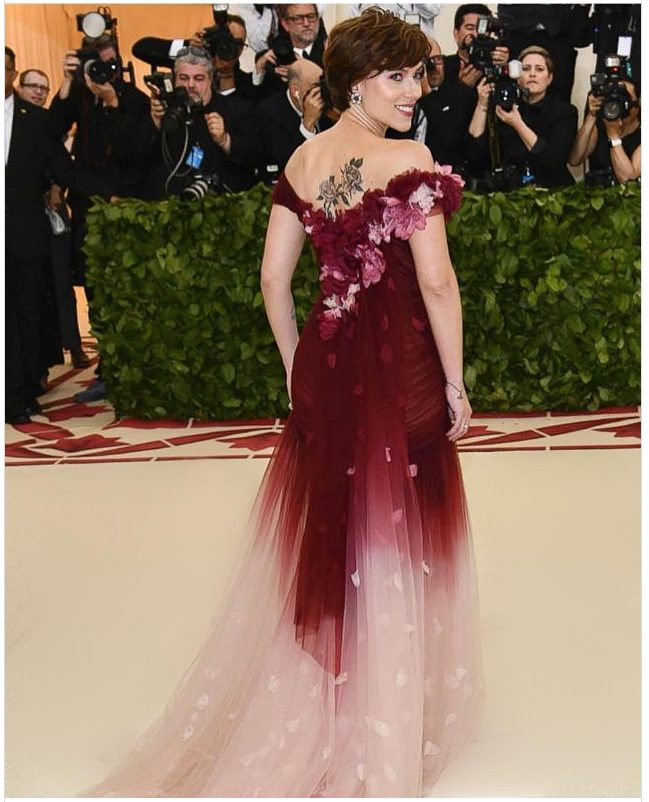
“I wore Marchesa because their clothes make women feel confident and beautiful, and it is my pleasure to support a brand created by two incredibly talented and important female designers,” she said in a statement to Entertainment Tonight.
As Vogue pointed out, Hollywood stars like Vanessa Hudgens, Priyanka Chopra Jonas, and Cindy Crawford donned Marchesa gowns not long after Johansson.
July 2018: She accepted a role as a transgender man in ‘Rub & Tug’ before dropping the project due to widespread backlash
Johansson ran into another casting controversy after accepting a role as Dante “Tex” Gill, a transgender man that operated a prostitution and massage parlor business in the ’70s, in “Rub & Tug.”
The LGBTQ community and its allies argued that the role should have gone to a transgender actor, not a cisgender woman, and said it contributed to trans erasure.
Despite the onslaught of criticism, Johansson stood her ground and pointed to other cisgender actors previously cast in roles as transgender characters on TV and in movies.
“Tell them that they can be directed to Jeffrey Tambor, Jared Leto, and Felicity Huffman’s reps for comment,” the actor told Bustle.
Jeffrey Tambor, a cisgender man, played a trans woman on “Transparent.” Jared Leto, a cisgender man, was cast as a trans woman in “Dallas Buyers Club.” Felicity Huffman, a cisgender woman, took on a role as a trans woman in “Transamerica.”
Johansson dropped the project soon thereafter “in light of the recent ethical questions” about the casting decision, she announced in an exclusive statement to Out.
“Our cultural understanding of transgender people continues to advance, and I’ve learned a lot from the community since making my first statement about my casting and realize it was insensitive. I have great admiration and love for the trans community and am grateful that the conversation regarding inclusivity in Hollywood continues,” she wrote.
Johansson went on to say she understood why people felt that Dante should be played by a trans actor, adding that she’s grateful to participate in a “controversial” debate that’s sparked “a larger conversation about diversity and representation in film.”
She also addressed the controversy in an interview with Vanity Fair’s Chris Heath in 2019 and said she “mishandled” the situation. Johansson explained that she was “uneducated” about the topic, adding that her behavior was “not sensitive.”
“I misjudged that…. It was a hard time. It was like a whirlwind. I felt terribly about it. To feel like you’re kind of tone-deaf to something is not a good feeling,” she said.
In 2020, New Regency shifted “Rub & Tug” into a TV show and announced plans to cast a trans actor as Dante, according to Deadline. The outlet also reported that New Regency will bring on Our Lady J, an Emmy-winning writer and producer, to work on the pilot episode.
July 2019: Johansson reignited the conversation about her ‘Rub & Tug’ casting by saying actors should be able to play anyone they want
A year after the online furor that followed her “Rub & Tug” casting, Johansson asserted that she should be able to play any role she pleases.
“You know, as an actor I should be allowed to play any person, or any tree, or any animal because that is my job and the requirements of my job,” she told artist David Salle during an interview with As If.
Johansson described the current time period in acting “sort of identity-less,” the same word she used to describe Major during her 2017 interview on “Good Morning America,” and discussed the industry’s casting “trends.”
“Today there’s a lot of emphasis and conversation about what acting is and who we want to see represent ourselves on screen. The question now is, what is acting anyway?” she asked.
Johansson later added that there are now “social lines being drawn” and “a lot of political correctness” in art. And while the actor acknowledged that the aforementioned lines are necessary, she said it’s “uncomfortable” for it to impact her work.
“I feel art should be free of restrictions,” she said.
After the interview went live, Johansson said in a statement provided to Insider that the Q&A had been “edited for click bait and is widely taken out of context.”
“I personally feel that, in an ideal world, any actor should be able to play anybody and art, in all forms, should be immune to political correctness,” she said. “That is the point I was making, albeit didn’t come across that way.”
“I recognize that in reality, there is a widespread discrepancy amongst my industry that favors Caucasian, cis gendered actors and that not every actor has been given the same opportunities that I have been privileged to,” she said, explaining that she supports “diversity in every industry.”
Johansson opted out of further discussing her casting controversies during a 2019 interview with The Hollywood Reporter.
“There’s other voices that have more to say on this subject that probably need a microphone,” she said, adding, “Yeah. I think I’m done speaking on that subject.”
September 2019: She defended Woody Allen amid Dylan Farrow’s sexual abuse allegations against him
Many Hollywood figures distanced themselves from Allen after Dylan Farrow’s sexual abuse allegations against the filmmaker, who used to date her mother Mia Farrow, resurfaced during the #MeToo movement.
Johansson, however, defended the “Midnight in Paris” director, who has denied Dylan’s accusations for years.
The actor previously worked with Allen in “Match Point” (2005), “Scoop” (2006), and “Vicky Cristina Barcelona” (2008). And if it were up to her, she’d shoot another film with him, she told The Hollywood Reporter’s Rebecca Keegan during a 2019 interview.
“I love Woody,” she said, adding, “I believe him, and I would work with him anytime.”
Johansson went on to say that she sees Allen as frequently as she can and has had “a lot of conversation with him” about the allegations.
“I have been very direct with him, and he’s very direct with me. He maintains his innocence, and I believe him,” she said.
Keegan asked if Johansson was concerned that standing by Allen may cast doubt on women that come forward with allegations. The actor replied: “It’s hard because it’s a time where people are very fired up, and understandably. Things needed to be stirred up, and so people have a lot of passion and a lot of strong feelings and are angry, and rightfully so. It’s an intense time.”
Many people viewed Johansson’s stance on Allen as hypocritical.
They wondered why Johansson would stand by the filmmaker a year after calling out James Franco for supporting Time’s Up before five women accused him of misconduct in a report published by The Los Angeles Times.
Dylan, who first accused Allen of sexual abuse in 1992 when she was 7 years old, reacted to Johansson’s comments on social media.
“Because if we’ve learned anything from the past two years it’s that you definitely should believe male predators who ‘maintain their innocence’ without question,” she tweeted.
Dylan added, “Scarlett has a long way to go in understanding the issue she claims to champion,” referring to the actor’s public support of #MeToo and Time’s Up.
In Johansson’s 2019 Vanity Fair cover story, she doubled down on her previous comments about Allen.
“I don’t know — I feel the way I feel about it,” she said, continuing, “It’s my experience. I don’t know any more than any other person knows. I only have a close proximity with Woody… he’s a friend of mine. But I have no other insight other than my relationship with him.”
The actor acknowledged that her defense of Allen amid the sexual abuse allegations could be “triggering” but said that believing her friend doesn’t discount her support for women or her belief in them.
“I think you have to take it on a case-by-case basis. You can’t have this blanket statement — I don’t believe that. But that’s my personal belief. That’s how I feel,” she said.
In the same interview, Johansson explained that she “can’t lie” about her opinions and doesn’t want to “edit” herself.
“I think that when you have that kind of integrity, it’s going to probably rub people, some people, the wrong way. And that’s kind of par for the course, I guess,” she said.
March 2021: Johansson said actors shouldn’t be expected to hold social or political responsibilities
The “Jojo Rabbit” actor reflected on her experience being at the center of numerous controversies during an interview with the UK publication The Gentlewoman.
“I’ve made a career out of it,” she said, later adding, “I’m going to have opinions about things, because that’s just who I am.”
Johansson said she now looks back at some of the situations as “embarrassing” and explained that it’s difficult for “everyone” to admit they’re wrong. However, she said she’s committed to “recognizing when it’s not your time to speak.”
“To have the experience of, ‘Wow, I was really off mark there,’ or ‘I wasn’t looking at the big picture,’ or ‘I was inconsiderate,'” she said. “I’m also a person.”
As an actor, Johansson doesn’t feel like she should hold social responsibility or political sway, she said.
“I don’t think actors have obligations to have a public role in society,” she began, continuing, “Some people want to, but the idea that you’re obligated to because you’re in the public eye is unfair. You didn’t choose to be a politician, you’re an actor.”
SOURCE: insider.com



